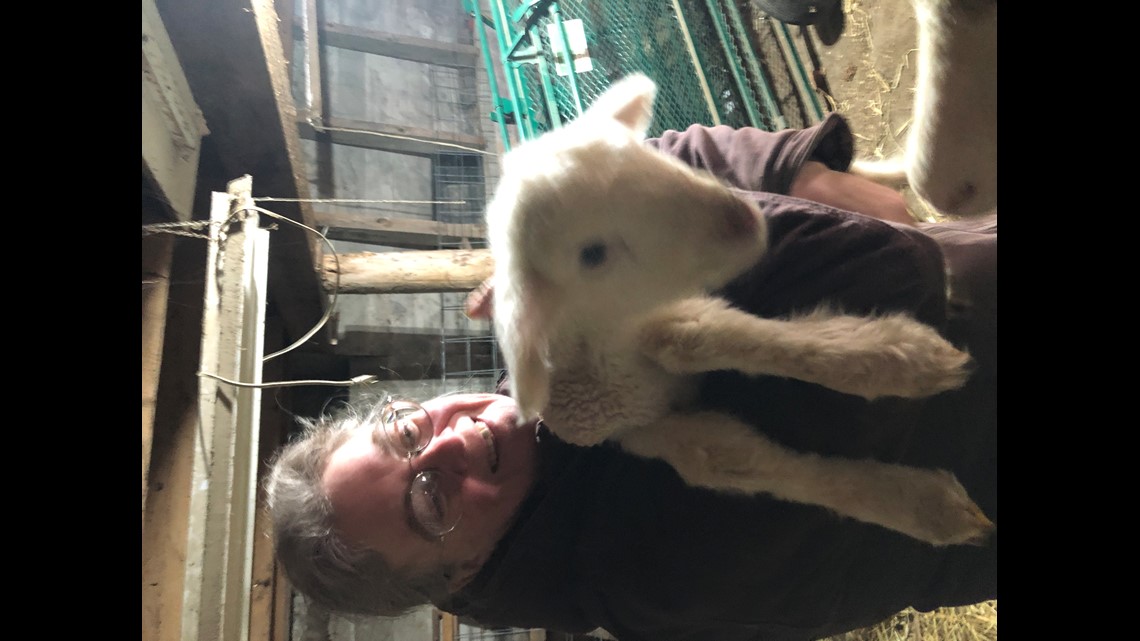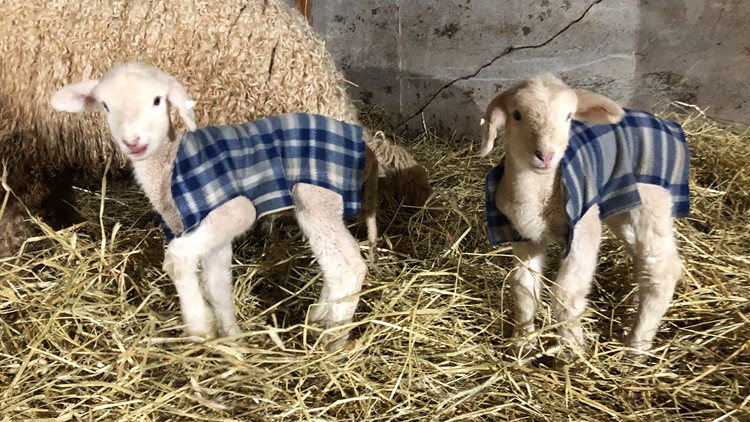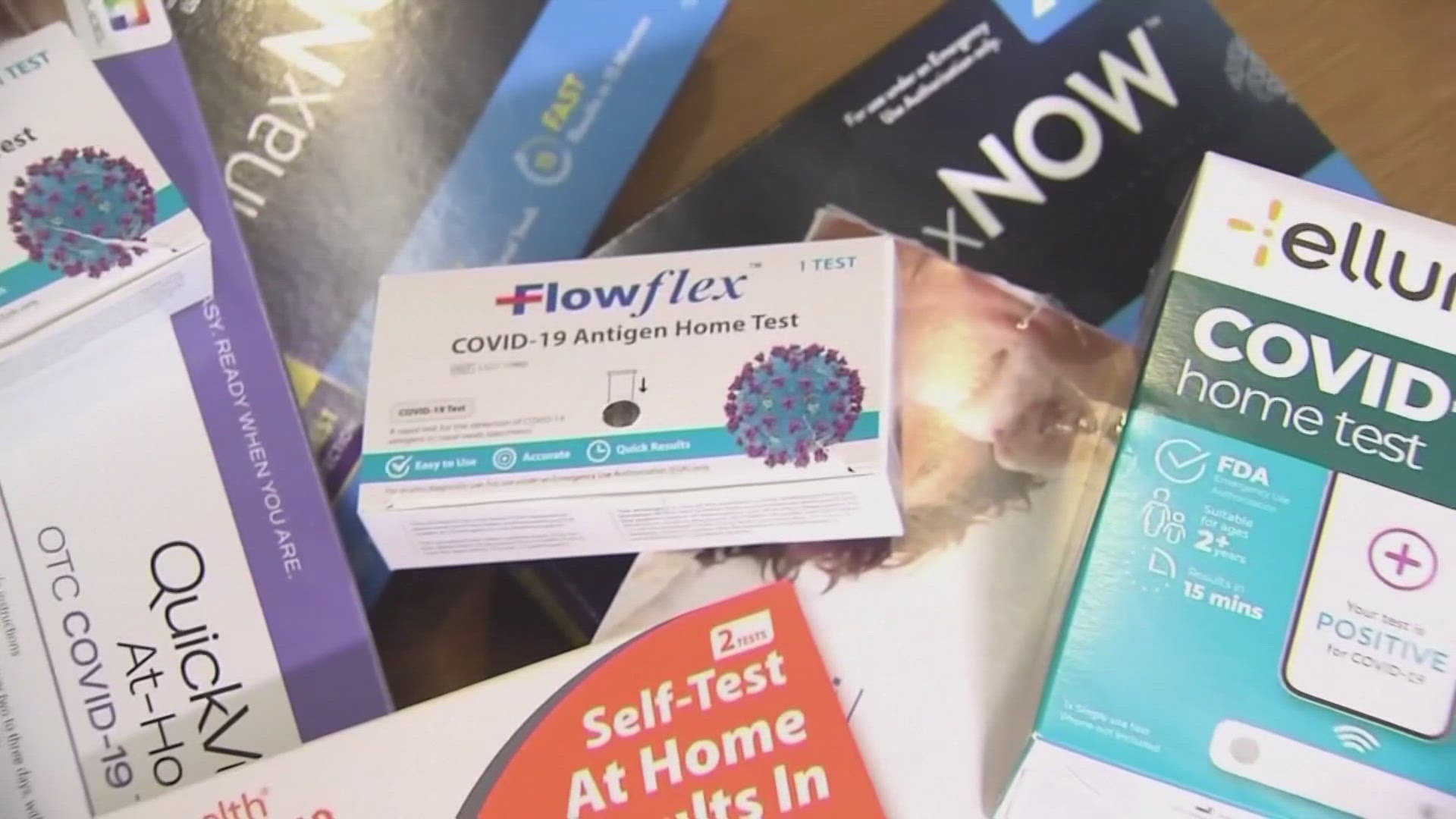MAINE, USA — Financial worries, unpredictable weather, and isolation make farming a tough job, but COVID brought a new layer of stress for Maine agriculture workers, especially if they're disabled.
"Farming can be stressful even in the best of times," Leilani Carlson, Maine AgrAbility coordinator at the University of Maine Cooperative Extension, said.
When those issues compound with existing physical or emotional barriers in the industry, anxiety and stress levels increase, according to Carlson.
"Without supports, this stress can lead to depression and additional health issues," she said.
Maine AgrAbility is a nonprofit collaboration of the University of Maine Cooperative Extension and Alpha One, a group that that helps promote independent living for disabled individuals.
Maine AgrAbility worked with UMaine Extension Farm Coaching to produce this video to help farmers find solutions for challenges they might face.
"A healthy farm is nothing without a healthy farmer," Carlson said.
Dr. Leslie Forstadt is a human development specialist at the University of Maine Cooperative Extension. She said the U.S. Department of Agriculture recently gave Maine a large grant to help farmers and other agriculture workers reduce stresses that affect mental health.
That money goes toward things like helping farmers access counseling, preventative services, and interventions like purchasing a hearing aid.
The Maine Farmer Resource Network surveyed agricultural workers about how COVID has affected their stress levels.
Results from the third COVID farmer survey found the following:
The survey showed 74% of respondents reported an increase in stress during the growing season compared with the previous year. And top stressors were changes in the market due to COVID at 63%, drought or other weather events at 73%, and changes to farm income and expenses due to COVID at 48%.
And that stress compounds the typical winter blues Maine farmers face each cold season.
The same survey found 46% of Maine farmers who responded said their farm revenue decreased in 2020 compared to the previous year.
Richard Brzozowski is the food system program administrator at the University of Maine Cooperative Extension.
"Farmers seem to always be optimistic. However, winters in Maine are long and cold. The days are short. Farmers are likely affected, but they seldom show it. Farmers try to stay busy preparing for the next growing season," Brzozowski said.
And for anyone who thinks farmers don't work during the winter, Carlson set the record straight.
"Farming doesn't stop in the winter. Animals still need to be fed, chores completed, [and] fences repaired," she said.
And to stay safe while completing those chores during the winter months, Maine AgrAbility put together a list of 10 tips for farmers. At the top of the list? Dress like an onion, and be pragmatic about how long specific tasks and chores might take.
A simple task in warm weather can be significantly changed by snow and ice.
For farmers, fishers, forest workers, and other agriculture workers who face a barrier or disability in their profession, Carlson said Maine AgrAbility provides recommendations and connections to resources that can help at no cost to workers.
To learn more about Maine AgrAbility, click here.
Forstadt said she wants Mainers to remember that farming is a profession.
"Folks have incredible skills and knowledge," she said. "Likewise, the people working on farms are training in a profession, and it can be stressful when the situation doesn't support an individual's wellbeing."
Robin Beck is a disabled shepherd in Livermore Falls. She's been at her current farm since 2011.
She and her wife are caretakers of the Rockin' Sheep Farm.


Beck said she has debilitating arthritis in her hands, fingers, and knees. And the cold, wet weather plays havoc with her joints when she's trying to get her work done.
Rolling a wheelbarrow in snow and ice is entirely different from in warmer seasons.
"It makes it very difficult to work. It wears you out a lot quicker," she said.
The shepherd said COVID has made it increasingly difficult to get ahold of doctors.
"It's kind of scary, you know?" she said. "You've got to wait a couple months to see an orthopedic guy to take care of you. They're slammed."
Beck said her wife's knee surgery was scheduled for December but was delayed.
On top of this, farming has one of the highest injury rates of any career, Beck said. She listed chopped-off fingers, falls, tractor accidents, and more all in the very cold Maine winter as examples.
"With emergency rooms overrun with COVID again and EMS either too busy or out sick, what does a farmer do when they have to have emergency care?"
One source of help? AgrAbility.
"I'm lucky. I've got good resources with AgrAbility and the USDA," she said. "They're helping me to compile the equipment I need."
Beck said she's 57 and still has years of farming ahead of her.
What most folks may not realize about shepherds is they do a lot of their own animal care, especially hoof care.
"I'm very fortunate. I have a vet come out once a year," she said. Other times, Beck said, she can call the vet and get advice on how to handle some issues. Beck has to draw up her own medication and syringes, which is challenging with her hands.
Her sheep need to have their hooves trimmed monthly. Maine has lots of grass and soft turf, so their hooves grow a lot faster. Then there's shearing her sheep, which happens once or twice a year.
Beck said she's fortunate Maine has talented sheep shearers.
But when Beck has to shear her own sheep, her disability makes it difficult. The shears weigh a lot, and the vibrations can cause issues with her joints.
"They're not a lightweight little tool. It's pretty taxing on you," she said.
Fortunately, programs like AgrAbility are available to help farmers like Beck. She said AgrAbility could come out to a farm and watch a farmer work, then make suggestions on how it'd be easier to handle tasks. The program can also help find affordable equipment.
"The biggest thing, you need to know your resources and what's available to help you out," she said.
The Division of Vocational Rehabilitation also helped Beck, she said, setting her up with a business plan manager when she was getting started with the farm. It helped with equipment and got her signs for the farm so people could come out and buy her products.
She said, "They're really good resources for anybody, but especially for farmers."



